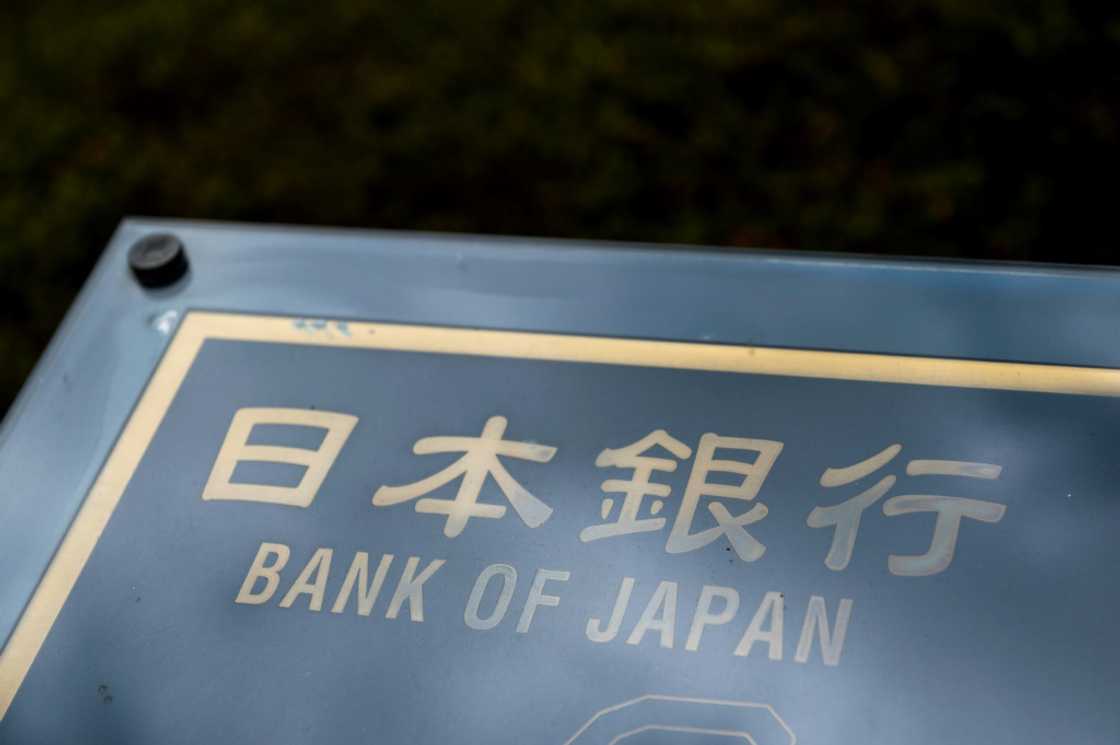
Source: AFP
Asian stocks rose again Wednesday as some stability returned after a volatile start to the week, though Tokyo saw more big swings and the yen weakened further as analysts warned more upheaval could be in store.
After Monday's collapse that saw trillions of dollars wiped off valuations globally, traders returned to pick up bargains on Tuesday, with Japan's Nikkei bouncing back from a 12.4 percent loss to enjoy a more than 10 percent gain.
The recovery continued on Wall Street, with some observers saying the selling may have been a little overdone.
And Asia extended the rally, with Bank of Japan deputy governor Shinichi Uchida helping to soothe anxiety in a dovish speech in which he said officials would maintain their ultra-loose policies while there were ructions in markets.
"As for the future conduct of monetary policy, in a nutshell, I believe that the Bank needs to maintain monetary easing with the current policy interest rate for the time being, with developments in financial and capital markets at home and abroad being extremely volatile," Uchida said in a speech.
He added that the yen has in recent days "appreciated significantly against the US dollar, since large positions that had been built up on a weaker yen are being unwound".
"Moreover, partly due to the correction of the yen's depreciation, stock prices in Japan have declined to a greater extent than other economies."
Investors had been sent scurrying after data released on Friday showed that the US economy created far fewer jobs than expected in July, fanning recession fears.
That came soon after the Federal Reserve hinted at a September interest rate cut, hours after the Bank of Japan hiked them for the second time in 17 years -- sending shivers through financial markets.
Uchida's comments were much welcomed by investors.
Tokyo ended the morning more than two percent higher, having fallen more than two percent soon after the open, while Hong Kong, Shanghai, Sydney, Seoul, Singapore, Wellington, Taipei, Manila and Jakarta were also in positive territory.
The yen also weakened further to more than 146 per dollar, having hit less than 142 Monday, its strongest in six months.
The stronger Japanese currency had thrown a spanner into a common trading strategy of borrowing at low interest rates in Japan and investing in high yielding assets elsewhere, such as US tech stocks.
With Fed and BoJ rates going in different directions this so-called yen carry trade saw many investors dump assets to cover their positions, magnifying the rout.
While there is a relative calm on trading floors at the moment, observers warned investors to remain wary.
"Turnaround Tuesday truly lived up to its name with the dramatic surge in Japanese stocks," said analyst Stephen Innes, adding that the previous two days had been "a real financial rollercoaster".
"This volatility is typical of more prolonged and chaotic market downturns, which could prompt investors to adopt a cautious stance, hold on tight, and keep the antacids ready," he said in his Dark Side Of The Boom newsletter.
"Brace yourself for some rapid swings in both directions -- the market could soon resemble a teeter-totter on a caffeine high."
And Asset Management One said in a commentary: "It is important to note that the current situation may continue for some time, as it did during the recovery from the 1987 Black Monday.
"The increased market volatility shouldn't be ignored."
Key figures around 0300 GMT
Tokyo - Nikkei 225: UP 2.3 percent at 35,464.61 (break)
Hong Kong - Hang Seng Index: UP 1.3 percent at 16,858.87
Shanghai - Composite: UP 0.2 percent at 2,873.16
Dollar/yen: UP at 146.50 yen from 144.68 yen on Tuesday
Euro/dollar: DOWN at $1.0917 from $1.0933
Pound/dollar: UP at $1.2708 from $1.2691
Euro/pound: DOWN at 85.91 pence from 86.12 pence
West Texas Intermediate: DOWN 0.2 percent at $73.06 per barrel
Brent North Sea Crude: DOWN 0.1 percent at $76.41 per barrel
New York - Dow: UP 0.8 percent at 38,997.66 (close)
London - FTSE 100: UP 0.2 percent at 8,026.69 (close)
Source: AFP
















 English (US) ·
English (US) ·